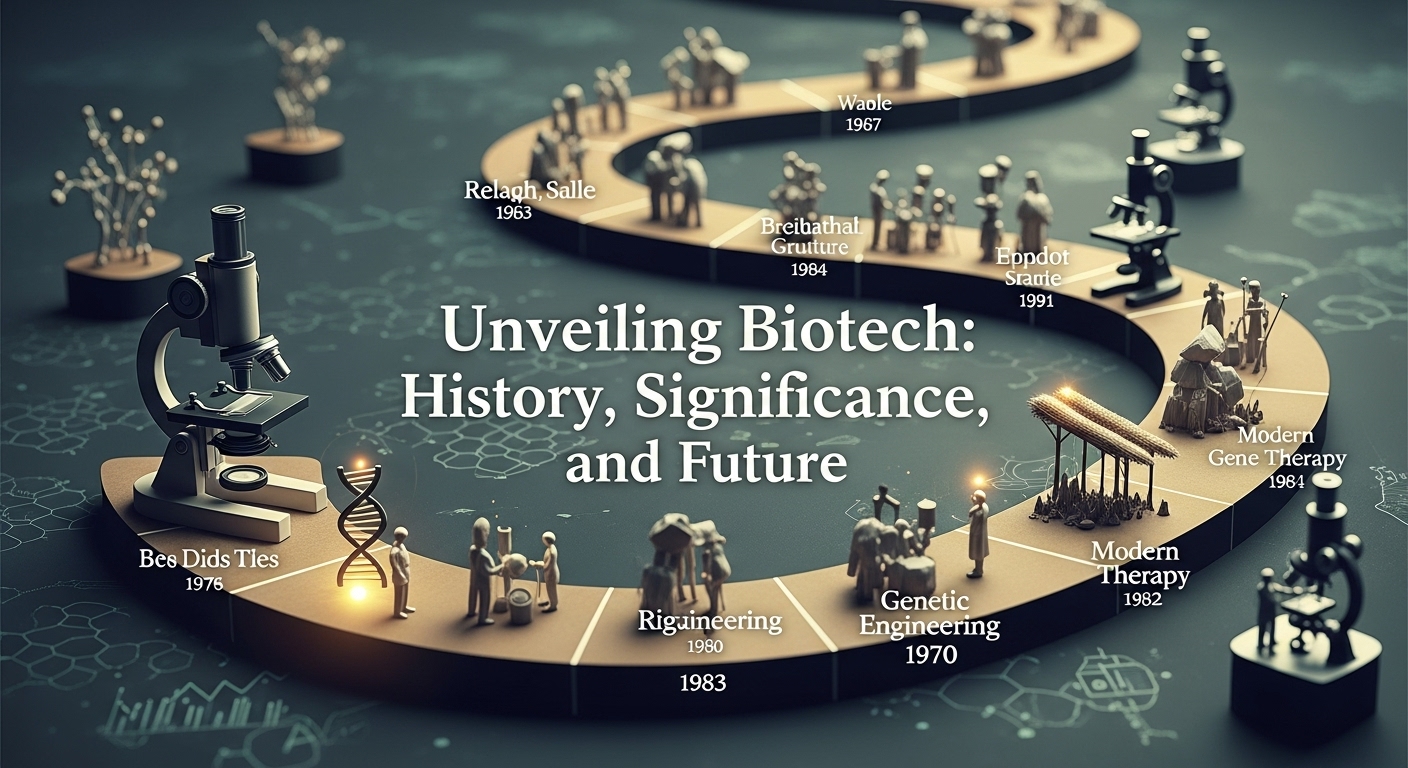Biotechnology, often referred to as biotech, is a field that merges biology with technology to create innovative products and solutions that benefit society. This interdisciplinary field has revolutionized various industries, from healthcare and agriculture to environmental conservation. In this blog post, we will delve into the history, significance, applications, and future trends of biotechnology.
### History of Biotechnology
Biotechnology has a rich history that dates back thousands of years. One of the earliest examples of biotechnology is the fermentation process used to produce bread, beer, and cheese. However, modern biotechnology as we know it today began in the 1970s with the development of genetic engineering techniques that allowed scientists to manipulate the genetic material of organisms.
### Significance of Biotechnology
Biotechnology plays a crucial role in advancing medicine, agriculture, and the environment. In medicine, biotech has led to the development of life-saving drugs, personalized medicine, gene therapy, and diagnostic tools. In agriculture, biotechnology has enabled the creation of genetically modified crops that are more resistant to pests and environmental stress, thus increasing crop yields and addressing food security challenges. Additionally, biotechnology has contributed to environmental sustainability through the development of biofuels, bioremediation techniques, and waste treatment solutions.
### Applications of Biotechnology
#### Healthcare
Biotechnology has revolutionized healthcare by enabling the production of biopharmaceuticals, such as insulin and vaccines, through recombinant DNA technology. It has also paved the way for precision medicine, where treatments are tailored to an individual’s genetic makeup, leading to more effective and personalized healthcare.
#### Agriculture
In agriculture, biotechnology has introduced genetically modified organisms (GMOs) that are more resilient to pests, diseases, and environmental conditions. This has helped farmers increase crop yields, reduce the use of pesticides, and improve the nutritional content of crops.
#### Environmental Conservation
Biotechnology offers solutions for environmental conservation through bioremediation, the use of microorganisms to clean up pollutants in soil and water. It also plays a role in developing sustainable biofuels as alternatives to fossil fuels, thus reducing greenhouse gas emissions and mitigating climate change.
### Future Trends in Biotechnology
The future of biotechnology holds immense potential for further advancements. Some key trends to watch out for include:
– **CRISPR Technology**: The revolutionary CRISPR-Cas9 gene editing technology allows for precise modifications to DNA, opening up possibilities for treating genetic disorders and creating disease-resistant crops.
– **Synthetic Biology**: This field focuses on designing and constructing new biological parts, devices, and systems to solve complex problems, such as developing biofuels and improving drug production.
– **Microbiome Research**: The study of the microbiome, the diverse community of microorganisms living in and on our bodies, is uncovering new insights into human health and disease, offering opportunities for personalized medicine.
### Conclusion
In conclusion, biotechnology is a dynamic and rapidly evolving field that has a profound impact on various aspects of our lives. From transforming healthcare and agriculture to fostering environmental sustainability, biotechnology continues to drive innovation and address pressing global challenges. As we look to the future, the potential of biotechnology to revolutionize industries and improve quality of life remains boundless. Stay tuned for the exciting developments that lie ahead in the world of biotech!



